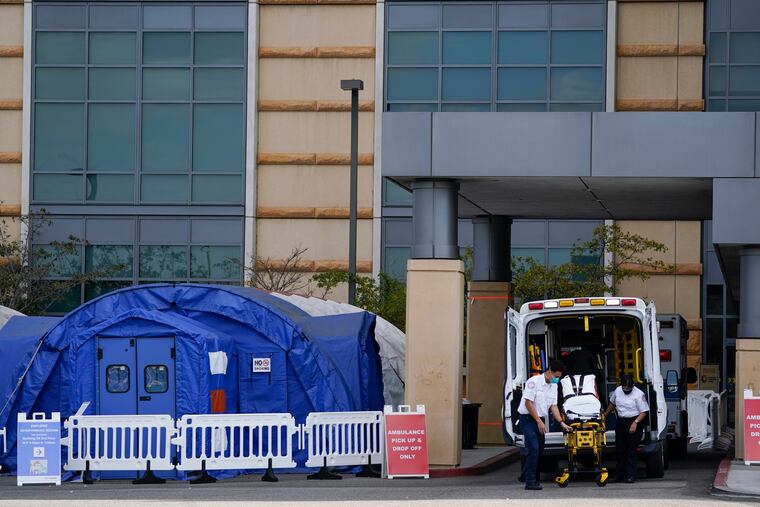Congress’ ban on surprise medical billing misses opportunity to rein in prices | Opinion
What could and should have been a major victory for patients has turned into a hollow one.

Congress has finally acted to end the blatantly unfair practice of surprise medical billing. Unfortunately, what could and should have been a major victory for patients has turned into a hollow one.
Starting in 2022, the No Surprises Act will protect patients from surprise medical bills from hospitals, doctors and air ambulance companies (ground ambulances are exempt). Yet an important opportunity to rein in runaway health care prices was lost.
Surprise medical bills, a type of balance billing, occur when patients receive care at a hospital that accepts their insurance, but are treated there by doctors who do not. Patients naturally think that if the hospital accepts their insurance then the doctors that work there do also.
Unfortunately, this is often not the case, especially for specialties such as emergency room physicians, radiologists, assistant surgeons, and others. Patients may have never met these doctors, and are understandably surprised to receive bills from them.
Because of the nonsensical system of health care pricing, billing and payment based on a chargemaster—a list of every good and service offered by the hospital and the exorbitant list price for each item—out-of-network patients are charged grossly excessive prices that can be so much higher than those charged to in-network health plans that they are financially devastating.
The Act makes surprise bills illegal but fails to address the real issue: the grossly excessive price of U.S. healthcare. Under the Act, providers will be required to negotiate with insurers and agree on a reasonable price, but if no agreement is reached the Act provides for an independent dispute resolution (IDR) process to determine the price.
While the Act does take patients out of the middle of the fighting between providers and insurers, IDR ensures that any benefit gained by patients will be given back, and then some, in the form of the higher insurance premiums driven by ever-increasing health-care prices.
Congress failed by not adopting the proposed federal benchmark price, based on the median in-network amount agreed to by providers, to resolve disputes between providers and insurers. This approach would have reduced exorbitant U.S. healthcare prices and provided a lasting benefit to patients. Hospital and physician groups spent millions of dollars on lobbying and ads to avoid the benchmark price and replace it with IDR. It seems their money was well spent.
Congress caved to the intense lobbying of providers, including private-equity backed physician staffing groups, that use surprise billing as a reprehensible business model and adopted the IDR system supported by these groups.
» READ MORE: Consumer relief: COVID-19 bill to end ‘surprise’ medical bills
Worse, Congress has now prevented the arbitrator from considering Medicare prices in their determination of a fair price.
While providers note that arbitrators also can’t consider providers’ exorbitant chargemaster-based list prices, this is a false comparison. Medicare rates have a reasonable basis in hospital costs and are adjusted for geographic region and other provider/case specific circumstances. The list prices set by providers are a fantasy, purposely set at excessive levels for leverage in negotiations with commercial insurers.
Medicare prices are a reasonable starting point in the determination of a fair price; list prices are not. However, in competitive markets the best price to use is the median in-network price paid by insurers. This is a true market price and avoids the expense and gamesmanship associated with arbitration.
The likely result of Congress’ failure will be that IDR will be an expensive, bureaucratic process with little transparency that ensures America continues to have the highest health care prices in the world.
To control health care prices, what is needed is federal legislation setting healthcare prices for all self-pay patients—not just those receiving surprise bills—at the median in-network price in competitive markets, and at a percentage tied to the Medicare price (e.g., 125%). in the increasing number of noncompetitive healthcare markets dominated by one large hospital system.
George A. Nation III is a professor of law and business at Lehigh University in Bethlehem, Pennsylvania.